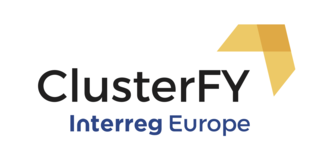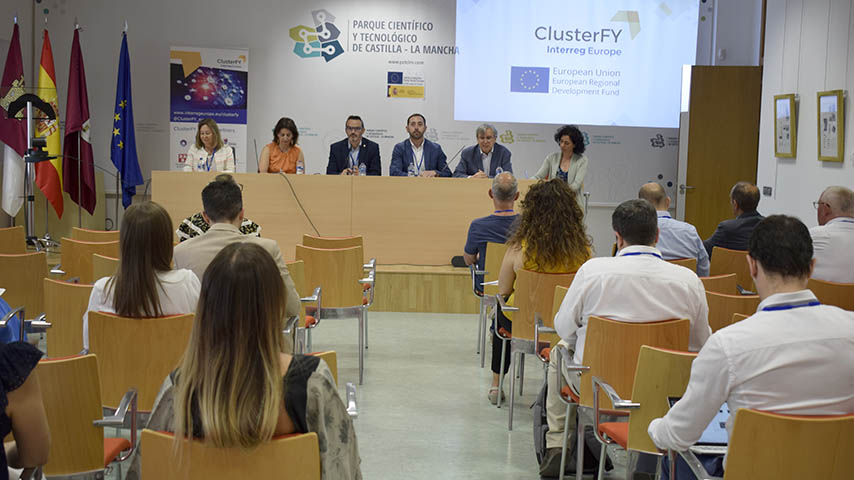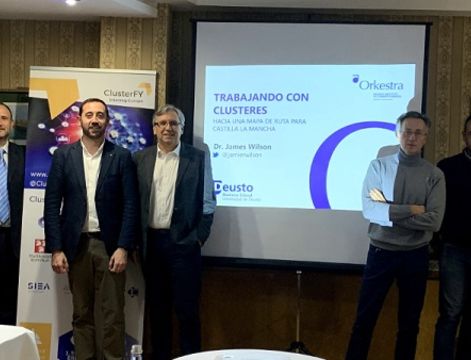As Part of the ClusterFY project, each partner region organizes several meetings with their regional stakeholders. On May 31th the Northern Netherlands organized their first stakeholder meeting. This first stakeholder meeting was aimed on mobilizing the cluster managers of the North and to let them really take a share in the work the ClusterFY project will develop in the coming years.
A good sign of interest in the project activities was the fact that prior to the meeting all clusters accepted the invitation to participate in individual qualitative interviews. These interviews have provided a clear picture on the actual state of play of the Northern Netherlands clusters on the four main topics of the ClusterFY project:
- How do clusters deal with the EU cluster policy, Cluster Excellence
- How do clusters value the regional ERDF programming policy in relation to their day to day cluster management
- How have clusters integrated the EU KETS policy in their cluster management
- Do the clusters have a strategy to foster interregional cooperation and if yes what is this strategy
The stakeholder meeting was organized around the above mentioned topics also showing the outcomes of the interviews. Next to introductions on these topics much time was reserved for discussions which were organized in the World Café method.
A World Café or Knowledge Café is a structured conversational process in which groups of people discuss a topic at several tables, with individuals switching tables periodically and getting introduced to the previous discussion at their new table by a "table host". A café ambience is created in order to facilitate conversation. Individuals are encouraged to write or doodle on the tablecloth so that when people change tables, they can see what previous members have written as well as hearing the table host's view of what has been happening. The World Café method was chosen because it is a simple, effective, and flexible format for hosting large group dialogue.
Program of the meeting:
- An introduction on the goals of this and upcoming ClusterFY meetings and activities in the coming years
- A summary of the findings of the above mentioned interviews.
- A short introduction of the EU Cluster Excellence, in relation to the interview outcomes
- A short introduction on the topic of interregional cooperation in relation to the interview outcomes
- Two rounds of discussion based on the World Café method
- Networking moment
The most interesting conclusions of the stakeholder meeting:
- All clusters emphasized the importance to have a regional platform for exchange of experiences. They are prepared to take a stake in the future actions of the ClusterFY project.
- All clusters emphasized the importance of regional meetings/discussions which focus on the effectiveness of the actual policies and the discussion how to improve them.
- One of the main conclusions from both the interviews and the discussions during the meeting was that clusters experience the lack of organizational ability available to the SME’s in the regions. In the current regional ERDF policy there are no financial means to fund organizing capacity, something that cluster can provide. On the other hand it is clear that organizing capacity is needed to bring SME’s on a next level of innovation and internationalization
- Clusters recognize the EU Cluster Excellence as an important means for profiling/branding their organization. This profiling can be of regional importance (recognition of quality and capacity) but is also of importance as enabler of international profiling, access to networks and funding. Some clusters are very active to get a Cluster Excellence label but others, although they see the importance, don’t have the capacity to work on this.
- All clusters emphasize the importance of international collaboration and the usefulness of Cluster Excellence as enabler for qualitative matchmaking. However, the lack of regional funding for organizing capacity means the clusters can’t spend much resources on this.
- All clusters state that they are aware of the fact that they work with Key Enabling Technologies (KET’s), but they don’t have an active development policy on KET’s.










